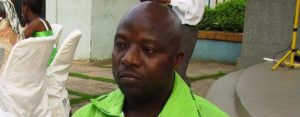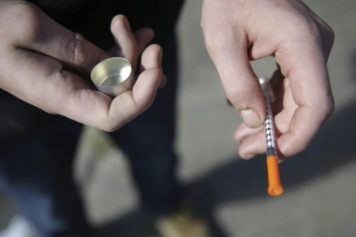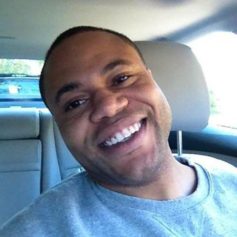
He got the first dose Saturday afternoon, a day before the head of the Centers for Disease Control and Prevention said he wasn’t getting any drugs.
Duncan, who is in critical but stable condition at Texas Health Presbyterian Hospital in Dallas, is being treated with an “investigational” medication called brincidofovir, which is manufactured by a Durham, North Carolina-based biopharmaceutical company named Chimerix.
The sequence of events is undoubtedly embarrassing to CDC Director Dr. Thomas Frieden, who told the media over the weekend, “As far as we understand, experimental medicine is not being used.”
Frieden had said the doctors treating Duncan feared that the experimental medication may worsen his condition — so instead he’s just receiving supportive care. But it turns out he was painfully wrong.
In addition, Dr. Anthony Fauci of the National Institutes of Health said Sunday on Face the Nation that the supplies of ZMapp are depleted, with none available to treat Duncan — and none would be available for six to eight weeks. Meanwhile, Duncan had already received brincidofovir 24 hours earlier.
At a time when U.S. officials are trying to assure the American public that they have the virus well-contained and under control, the first appearance of the deadly virus on American soil has been accompanied by major bungling — starting when hospital workers initially sent Duncan home with an antibiotic after he came to the hospital with Ebola symptoms and told them he had been in West Africa.
CDC spokeswoman Kristen Nordlund tried to explain the brincidofovir mix-up, saying the CDC relies on the hospital to make announcements related to patient conditions and treatment, according to ABC News. But it’s not clear why Frieden, head of the nation’s premier disease-fighting institution whose staff has been battling Ebola since the virus’s re-emergence in West Africa earlier this year, was not informed that the first Ebola patient to be diagnosed on American soil was getting an experimental drug. In fact, a statement by the CEO of Chimerix indicates that the CDC was involved in the selection of the drug.
ABC News said Berrey’s statement suggests that others may also get the drug. Chimerix said they are “working closely with the FDA to finalize a clinical trial protocol.”
Brincidofovir is an oral antiviral drug that had been tested to fight more common viruses, including one that infects patients undergoing bone marrow transplants. But the lab tests suggested it might also fight Ebola.
Dallas County Judge Clay Jenkins, who was put in charge of overseeing the region’s response to Ebola, is being hailed for leading by example — visiting the home where Duncan was staying without protective clothing, personally driving the quarantined family to their new home, and trying to keep Dallas residents calm. Jenkins visited the family again Monday.
“We got [a] basketball to the boy and he said he liked football, so we got him a football,” Dallas Mayor Mike Rawlings said.
Texas Health Commissioner Dr. David Lakey told reporters this is “an important week” for Duncan’s family because this is the time period when they would start showing symptoms if they were infected.
He stressed that each of the relatives has their temperature checked twice daily and have not yet shown any symptoms.
Of the 50 other people being monitored, “100 percent of the people we’re-evaluating, 100 percent they don’t have it,” Lakey said.
Rawlings said all of Duncan’s personal items have been destroyed and “a drum is being taken away” with other possibly infected items — though they saved sentimental items like a grandmother’s Bible and photos, along with his passport.


